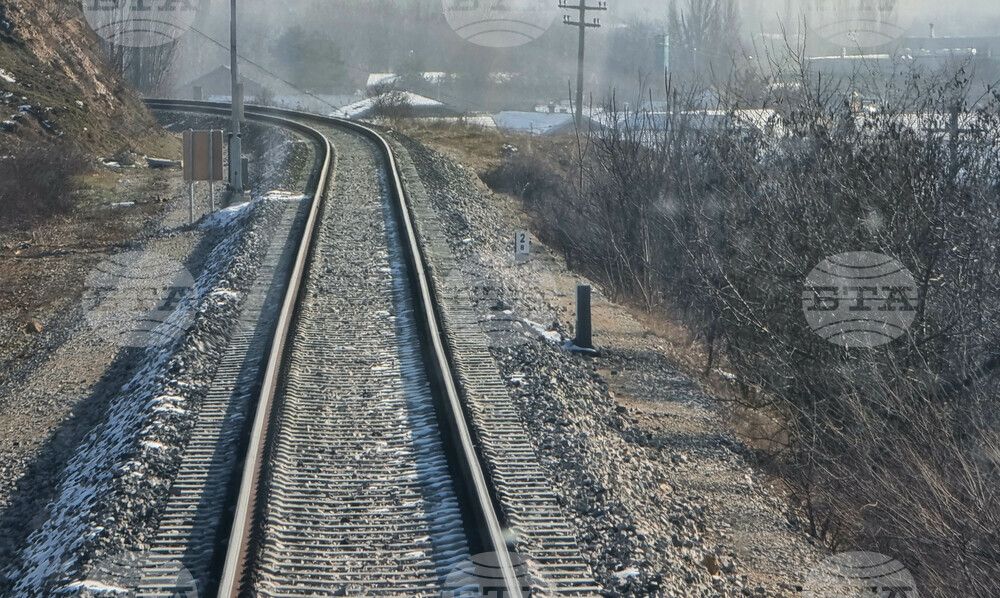site.btaTransport, Regional Development and Defence Ministers Present Corridor 8 Development Plans to EU and NATO Ambassadors


Transport and Communications Minister Grozdan Karadjov, Regional Development Minister Ivan Ivanov, and Defence Minister Atanas Zapryanov presented Bulgaria’s Corridor 8 development plans to ambassadors of EU and NATO member states, the Ministry of Transport and Communications said here Monday.
Representatives of the European Commission, the National Railway Infrastructure Company, and the Road Infrastructure Agency also attended the meeting.
Bulgaria is fully prepared and willing to sign an agreement with the Republic of North Macedonia and begin construction of the cross-border railway tunnel as soon as possible, Karadjov said. He provided detailed information about the railway projects on Bulgarian territory along Corridor 8 and noted that the tunnel between Bulgaria and North Macedonia is not just a physical connection between two countries but a key link for uninterrupted movement between the Adriatic and the Black Sea.
"We are awaiting a response from Skopje on the draft agreement, so that an expert-level meeting can be scheduled to discuss it," Karadjov said. If there are no objections from North Macedonia, the agreement could be signed immediately, he added. According to Karadjov, Bulgaria is ready to begin construction of the missing 2.4 km stretch from Gyueshevo to the border, but the tunnel must be built first.
"The daily challenges faced by our government demand much of our attention and quick response, but we must not lose focus on strategic goals that can elevate our countries to a new level. Corridor 8 is one such goal," said Ivanov. He called for faster progress and a concentrated effort toward the project’s implementation.
Zapryanov said the development of key infrastructure, including the railway link with North Macedonia, is of great importance and that tangible progress must be made in a short timeframe. He noted that military mobility is a priority for Bulgaria. "Bulgaria supports further development of military mobility not only as a flagship NATO-EU cooperation project but also as a means to strengthen regional security through improved connectivity of the European contingent," Zapryanov said.
Corridor 8 is a key trans-European transport route linking the Adriatic and Black Seas via Albania, North Macedonia, and Bulgaria. The railway component of the corridor, connecting Skopje and Sofia, has seen slow and uneven progress due to infrastructure gaps and political tensions. On January 17, 2025, North Macedonia inaugurated the first completed stretch of its eastern railway section—between Kumanovo and Beljakovce. The second section to Kriva Palanka is under construction, while the third and final segment to the Bulgarian border remains pending, awaiting coordination with Bulgaria.
Bulgaria and North Macedonia have been in negotiations over a cross-border tunnel at Deve Bair, critical to completing the link. A Bulgarian draft agreement was submitted in late 2024, and North Macedonia formed a ministerial working group in response. Prime Minister Hristijan Mickoski has said the deal must clearly define bilateral responsibilities. The Bulgarian government has emphasized its commitment to Corridor 8, stating the final 2.4 km to the border near Gyueshevo will be completed by 2029.
Tensions flared in March 2025 when North Macedonia’s Transport Minister Aleksandar Nikoloski accused Bulgaria of reallocating railway funds away from the Sofia–Skopje line, calling it a political signal. Bulgaria denied delaying the project and reaffirmed that the final tunnel and connecting section remain part of its national priorities under the Transport Connectivity Programme 2021–2027. The two sides continue to negotiate the terms for the cross-border tunnel, seen as a crucial link in the broader EU and NATO-backed infrastructure corridor.
/DD/
news.modal.header
news.modal.text